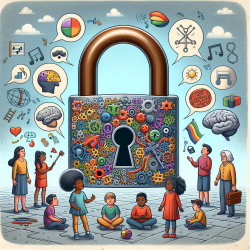The ability to understand speech is a complex process influenced by various auditory and cognitive factors. For older adults, these factors can significantly impact their ability to comprehend speech, especially in challenging listening environments. Recent research by Humes et al. (2013) sheds light on the individual differences in aided speech understanding among older adults. As a practitioner, understanding these findings can enhance your ability to support your clients effectively.
The Importance of Auditory and Cognitive Factors
The study conducted by Humes and colleagues involved 98 older adults and aimed to identify the key predictors of aided speech understanding. The researchers found that both auditory and cognitive factors play crucial roles in determining how well older adults understand amplified speech. This insight is particularly important for practitioners who work with individuals experiencing age-related hearing loss.
Key Findings from the Study
- Cognitive Processing: Cognitive abilities, such as working memory and processing speed, were found to be significant predictors of speech understanding. Practitioners should consider incorporating cognitive assessments into their evaluations to tailor interventions effectively.
- Psychoacoustic Factors: The study identified several non-speech psychoacoustic factors that influence speech understanding, including hearing loss, dichotic signal detection, and modulation detection. These findings highlight the importance of comprehensive auditory testing beyond standard audiometric evaluations.
- Environmental Sound Identification (ESI): ESI emerged as a strong predictor of speech understanding. Practitioners can use ESI tasks to assess an individual's ability to recognize sounds in complex listening environments, which can inform intervention strategies.
Practical Applications for Practitioners
The insights from this study offer valuable guidance for practitioners working with older adults experiencing hearing loss. Here are some practical applications:
- Cognitive Training: Incorporate cognitive training exercises into therapy sessions to enhance working memory and processing speed. This can improve clients' overall speech comprehension.
- Psychoacoustic Assessments: Conduct thorough psychoacoustic assessments to identify specific auditory processing challenges. Tailor interventions based on these assessments to address individual needs effectively.
- Audiological Rehabilitation: Use findings from ESI tasks to design audiological rehabilitation programs that focus on improving sound identification skills in noisy environments.
The Need for Further Research
The study by Humes et al. underscores the complexity of speech understanding in older adults and the need for continued research in this area. Practitioners are encouraged to stay informed about emerging research findings and integrate them into their practice. By doing so, they can provide evidence-based interventions that address the unique needs of their clients.










